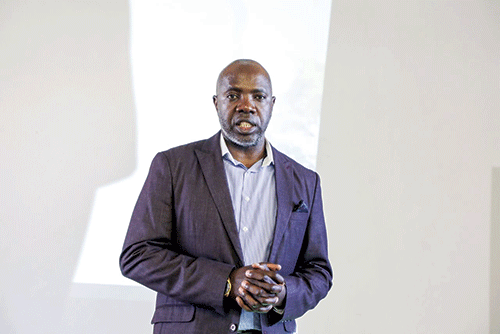REGULATIONS for the information commissioner’s office, which will implement the Access to Information Act, have already been formulated and now await the National Assembly’s endorsement.
“The regulations have been done. We are waiting for the National Assembly to reconvene, hopefully, sometime in January, so the regulations go through the National Assembly for approval,” information executive director Audrin Mathe has said.
He, however, hastened to say the ministry is not required to send the draft regulations to the National Assembly.
“Our feeling is that the information commissioner is an independent institution that requires a buy-in from all the stakeholders. That is why the minister [Peya Mushelanga] is of the feeling that he must take it to the National Assembly,” Mathe explained in an interview with New Era on Tuesday.
Mathe continued: “Once that has been done, the positions of the information commissioner [and] the two deputies will then be advertised and recruitment will be concluded because the timelines are already stated in the law. So once that is completed, then the office of the information commissioner is ready to roll out. Once the appointment has been made, we no longer have anything to do with them… they’ll have to draw up a structure and do the recruitment themselves. We wash our hands at that point.”
For the current financial year, N$20 million has been set aside for implementation.
Mathe said in a previous interview this office is part of the government’s HPP (Harambe Prosperity Plan), “where we say governance is one of the pillars that will underpin our next steps. That means any person in the country will have the right to access information that is in the possession of any institution – private or government [owned]. I think there is a misconception that this is only targeting government [entities]”.
He was quick to point out that in exceptional cases, such as privileged information between legal practitioners and their clients, confidential Cabinet documents or security information may not be accessed, even in the face of the Access to Information law. “One of the reasons cited was the absence of access to information law. But now that the law is there; hopefully, our rankings will go back to where it was – perhaps even higher – globally,” the ED stated emphatically.
Clarification
Meanwhile, a New Era article titled “N$100 mil digitisation dream gains momentum” published on Wednesday indicated that it would cost around N$100 million over the next three years to fully implement Namibia’s digital strategy.
However, the ministry clarified yesterday that the N$100 million was limited to the rollout and erection of connectivity towers in areas where network operators do not deem commercially viable but where Namibians need such services. “The N$100 million the executive director referred to was to build towers in areas where mobile operators might not deem it commercially viable to ensure that the communities are connected. This also compliments Namibia’s digitalisation dream,” MICT spokesperson Shoki Kandjimi clarified.
– emumbuu@nepc.com.na



